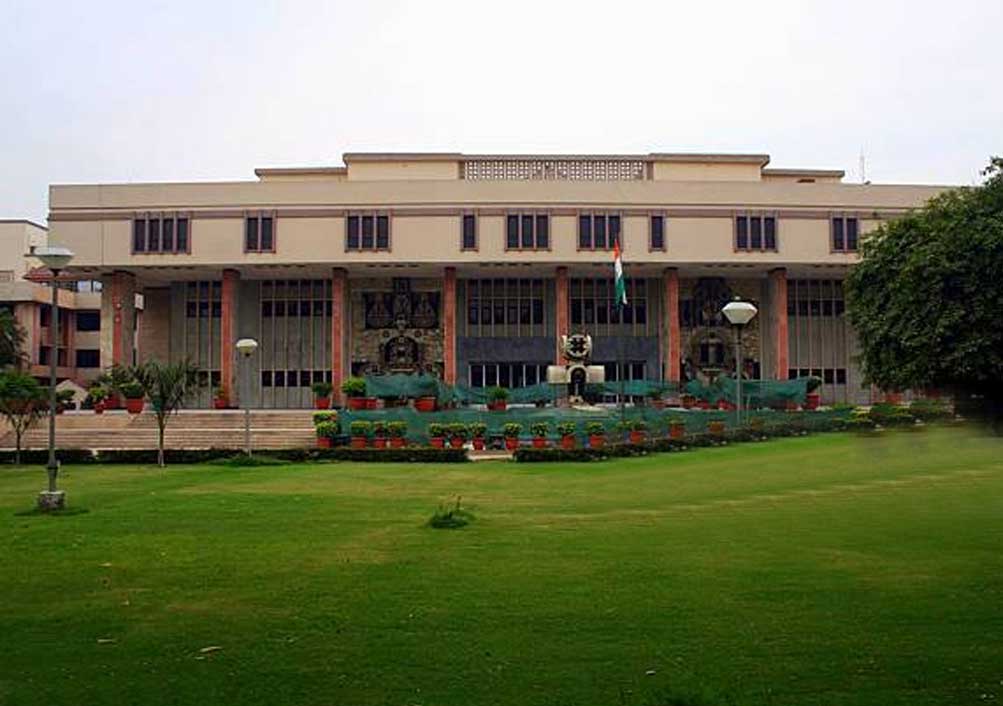Delhi High Court rejects parole plea of convicted terrorist, however, allows one time arrangement of video call with his parents
Justice Swarana Kanta Sharma [02-05-2024]

Read Order: FEROZ AHMED BHATT v. STATE OF NCT OF DELHI & ANR [DEL HC- W.P.(CRL) 3535/2023]
LE Correspondent
New Delhi, June 17, 2024: The Delhi High Court has denied parole to convicted terrorist Feroz Ahmed Bhatt, who has been in prison for 20 years, while explaining that as per the Rule 1211 of Delhi Prison Rules, the prisoners who are convicted for sedition and terrorist activities should not be granted parole except by discretion of the competent authority and in special circumstances.
The petitioner, in this case, was convicted for committing offence under Sections 3(3)/3(5)/4/20 of Prevention of Terrorism Act and Sections 121/121A/122/123 of Indian Penal Code, 1860, and Sections 4/5 of Explosives Substances Act, and was sentenced to undergo rigorous imprisonment for life. His conviction was upheld by the Top Court and he has been in judicial custody since 11.09.2003.
It was the petitioner’s case that he has been in judicial custody for more than 20 years and is presently about 44 years of age. He further stated that he now wants to get married, and for the purpose of getting married, since his parents are looking for a bride for him, he be released on parole, as he also wishes to meet his old aged parents.
The Single-Judge Bench of Justice Swarana Kanta Sharma noted that the petitioner seeks parole as his family is looking for a suitable match for him and to maintain social ties.
It was further noticed that he has been convicted of offences relating to terrorist activities and waging war against the country, by the Trial Court. “As per the Rule 1211 of Delhi Prison Rules, the prisoners who are convicted for sedition and terrorist activities, should not be granted parole except in discretion of the competent authority and in special circumstances,” the Bench said.
The Bench also did not overlook the fact that as per nominal roll, his conduct in the jail had been satisfactory over the last 20 years, except one punishment in the year 2010. Considering such aspects, the Court directed that the Superintendent Jail concerned will make one time arrangement for the video call of the present petitioner with his parents, in case he so desires in writing, in order to provide him an opportunity to at least talk to his parents and see them virtually, if not in person.
“This may to some extent bring solace to him as a son that he could see his parents and could speak to them even if virtually”, the Bench stated while disposing of the petition.
The facts of the case suggested that the co-accused in this case itself i.e. Noor Mohammad Tantry was released on parole. However, instead of returning to jail after the expiry period of his parole, he had joined a terrorist organization regarding which case under Sections 18/20/38 of ULA (P) Act was registered. He was thereafter neutralized in an encounter with security forces on. Moreover, a report received from Police Department, Avantipura, Jammu and Kashmir, where the present petitioner wants to reside, also mentioned that there is a reasonable apprehension that in case the present petitioner is released, he will abscond and join terrorist ranks and further his release on parole will be detrimental to the overall security of the area in the larger security interest.
The Bench placed reliance upon Asfaq v. State of Rajasthan [LQ/SC/2017/1342] and opined, “This Court is of the opinion that the factum of petitioner being convicted in a heinous offence and there being an actual apprehension regarding his presence in the area being detrimental to the larger security interest, coupled with the fact that one of his co-accused had again joined a terrorist organisation after being released on parole and was later neutralized in an encounter, are the factors which would come in the path of the petitioner’s application for parole. Therefore, considering the aforesaid facts and circumstances, this Court does not find it a fit case for grant of parole.”
Sign up for our weekly newsletter to stay up to date on our product, events featured blog, special offer and all of the exciting things that take place here at Legitquest.




Add a Comment